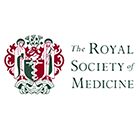How should an assessment for suspected Dementia be performed ?
Before discussing how Dementia is assessed it is important to understand what the term Dementia means -Dementia is in simply an umbrella term which means that an individual has an impairment in the memory and thinking sufficient to affect the person’s ability to perform their day to day activities.
Dementia can have various causes with the Alzheimer’s Disease being the most common cause.
As well as diagnosing that that a person does have Dementia it is vital to identify the cause of the Dementia as the different causes or types of Dementia have different characteristics and different symptoms and require different approaches and management strategies.
Unfortunately in many memory clinics often a person is labelled with a “Dementia diagnosis ” and the subtype or cause is not identified and a robust management plan aimed at optimising a persons symptoms and condition is not made.
Crucial to diagnosing Dementia and then identifying cause (subtype ) is a good detailed clinical history both from the individual but also particularly what we refer to as a collateral history from a relative or friend.
The history should include information on symptoms in relation to the different cognitive domains which are -Memory, Language, Executive Function and Visuospatial Function.
The clinical assessment should also include a physical examination to assess for relevant clinical features such as Parkinsonian features as this is relevant for identifying the cause of the dementia.
As well as a comprehensive clinical history the main investigations are a “cognitive blood test panel” which aims to identify potentially reversible causes of cognitive decline e.g Vitamin B12 deficiency, a cognitive assessment which usually a paper and pen based test to evaluate the person’s memory and thinking and a brain imaging test -with MRI brain to rule out the other causes of a decline in an individual’s memory and thinking and an MRI brain also helps to identify the different causes of dementia by identifying what we call neurodegenerative conditions ” which are conditions which cause progressive death of brain cells and therefore on an MRI this appears as “shrinkage” in the affected areas of the brain and in different causes of dementia different areas of the brain are affected with shrinkage in specific areas of the brain as opposed to global shrinkage which occurs with natural ageing.
The MRI Brain also looks at the blood vessels in the brain and is useful for diagnosing strokes and whether there is a significant vascular (blood vessel ) disease.
After a good clinical history and the investigations and assessments mentioned above a specialist in this field should have a good idea of whether dementia is present and the likely cause i.e subtype.
However in some cases when the Cognitive Assessment or MRI Brain are not conclusive then further detailed cognitive testing i.e an in depth Neuropsychometric assessment and more advanced “functional brain” scans may be indicated e.g FDG Pet scans which assess glucose metabolism in brain cells and are more sensitive in detecting “upstream neuronal vulnerability ” before brains cells die and cause shrinkage apparent on brain MRI.
Other type of functional brain scan that can help with diagnosis are Amyloid PET scans which assess amyloid burden and Dat Scans which detect dopamine deficiency.
Following a diagnosis of Dementia and subtype -the management plan should include specific advice on brain healthy strategies medication including cognitive enhancing medication to optimise control of symptoms with the aim of improving the person’s quality of life as well involvement of other healthcare professionals where needed.
This article was written by Dr Soumit Singhai who leads The Memory and Brain Health Clinic based at 25 Harley Street in London which provides assessment for Dementia and other cognitive problems.









